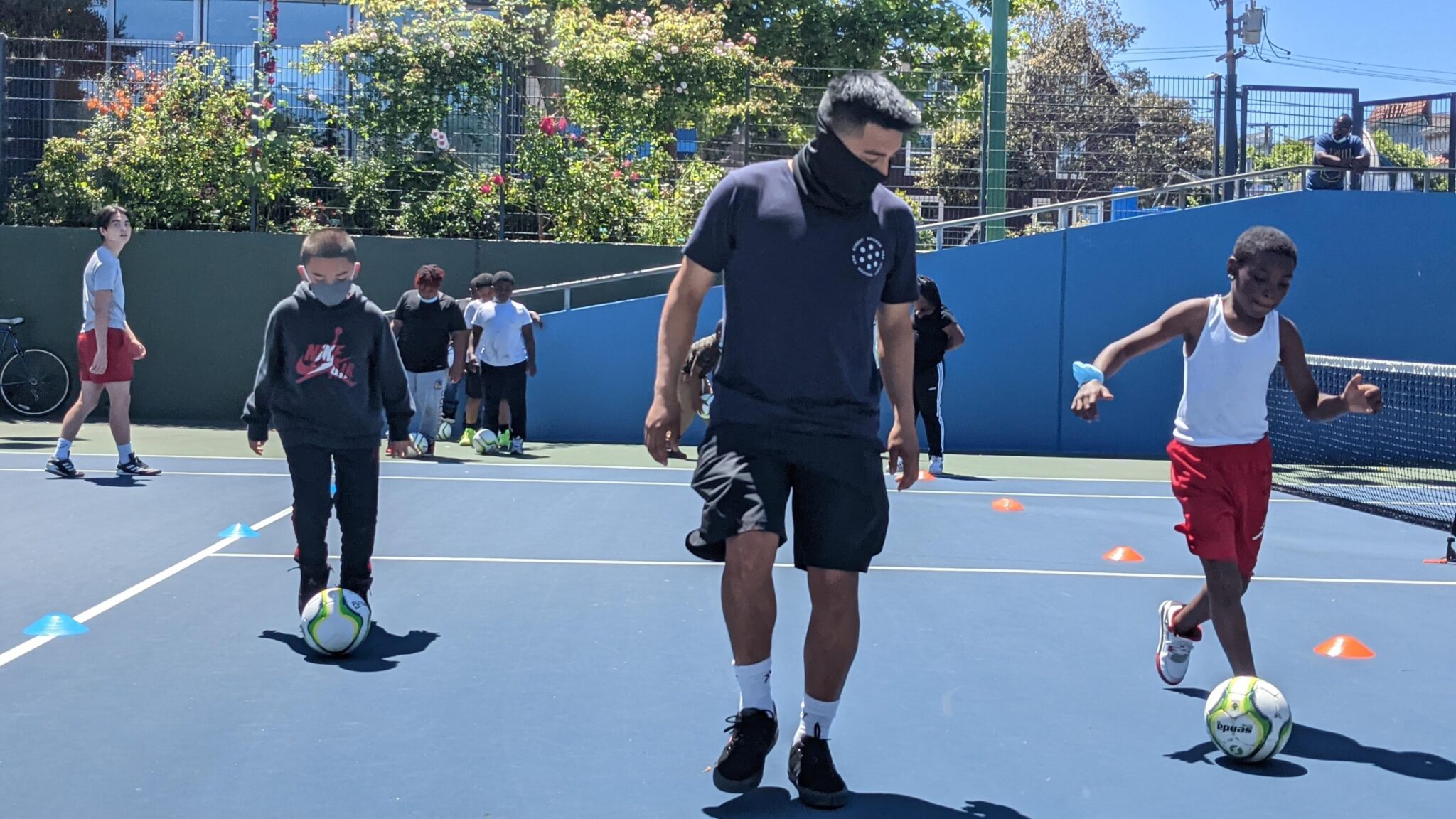It’s a little after six o’clock at night, and the Street Soccer USA field in downtown San Francisco is packed. Two teams are squared off in a heated match, sprinting up and down the field after the ball. Along one wall, Coach Andres is grinning and quietly offering pointers as the players run past. You almost don’t notice him, mistaking him for one of the players as he laughs, jumps in to kick the ball, and then jumps back.
But despite his understated presence, Coach Andres is a prominent fixture on the field. Every week, he coaches four SSUSA youth programs across the city. And tonight, he’s filling in for a sick coach and spending another two hours on the field. That’s the kind of guy he is: he shows up. Whether it’s for an extra soccer practice, setting up for World Cup watch parties, or playing pick up with his friends, you can count on Coach Andres to be there. He knows how important it is to show up, to be someone you can count on. Because when he was growing up, he didn’t always have that.
Andres grew up in Guatemala, living in his grandmother’s house with his sister and three cousins. The family struggled economically, lacking access to a lot of things that we take for granted. But his grandmother’s tenacity kept the family afloat.
“I don’t know how she did it, but she always put food on the table. One of the things that I always remember is that the access we have right now – for example, kids actually have soccer balls, and they actually have goals that they can score in, a field they can actually play with. I’m grateful that we have that, and in the past we didn’t have that.”
Andres and his cousins used what they found – sticks, plastic bags – to create makeshift soccer balls and goals. They saved money together until they could afford to buy a soccer ball. But not a nice one, just one of those cheap plastic balls that pops when you kick them too hard or they hit something sharp. But it didn’t matter, they used what they had.
When Andres was a teenager, his mother decided that she would move the family to the United States. More than 2,500 miles away, Andres didn’t know anyone in San Francisco. He didn’t even speak english.
“When I got here, I was really isolated. It was really hard to communicate, even to ask simple things. One of the things that helped me was soccer. I would take the ball to the field and just kick it around. Then I saw some people coming in. It was a community coming together around soccer. You don’t have to say anything. You don’t even have to share the same language. If you were on the field, new friends would come in.”
Seven years later, Andres is now using soccer as a way to make sure others feel included. “That’s one of the things I always strive to do: include everyone. I try to do my best to include everyone because I have received the same thing. I believe that what you give out is a proportion of what you receive back.” For Andres, he doesn’t judge players’ skills or ability when they step on the field. Instead, he sees the young boy he used to be, who started fresh in a new place and was able to build community through soccer.
“I actually found my place here at Street Soccer. Because here we have different backgrounds, different races, it’s just nice to see that we come together all the time.”


